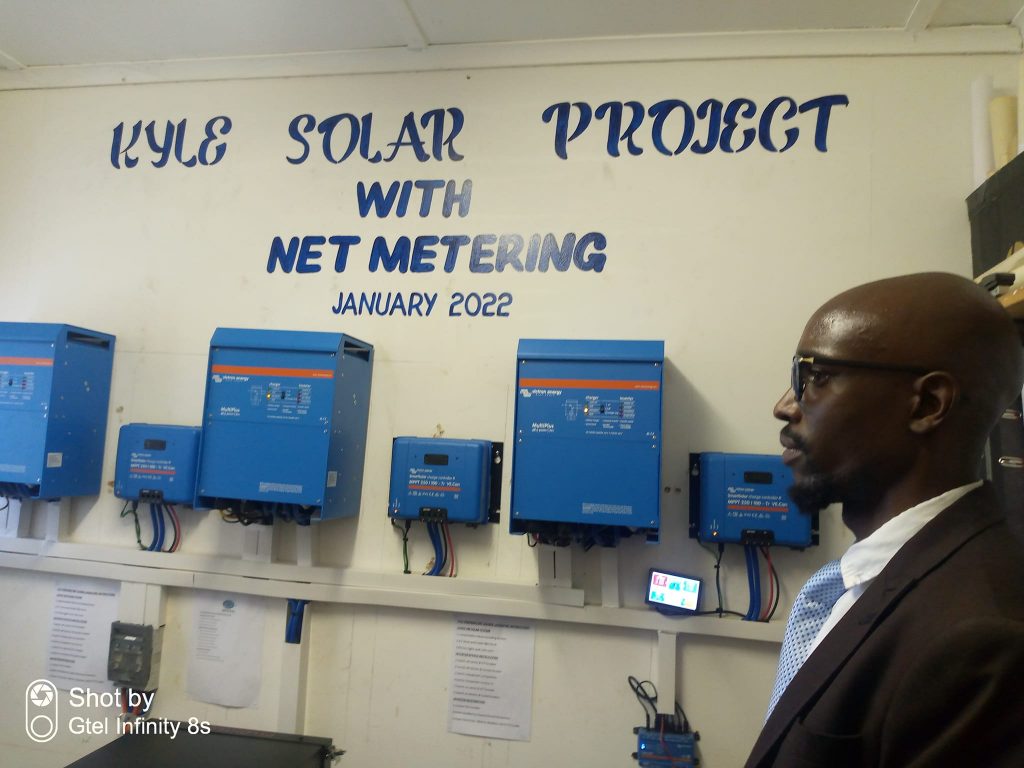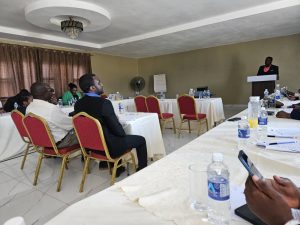EnviroPress Correspondent
Kyle Preparatory School recently commissioned a 15kVA solar plant which has helped set the pace for clean energy generation as well as greater energy conservation in an electricity deficient country, EnviroPress can report.
Work to build the new solar power system began in October 2021, and was completed at a cost of US$53 000 which the private primary school raised on its own to make sure that it cuts back on demand for electricity from the national grid.
The net-metered solar system becomes only the third such system in the whole of Masvingo province; after the one owned by State-controlled pharmaceutical company Natpharm, and the other owned by a private household in Gutu district.
The Natpharm system generates 300kVA while the one at the Gutu household generates 10kVA.
The Kyle Preparatory School’s solar energy system; which has 36 solar panels, six lithium batteries and three invertors, was installed by Bulawayo-based Inyasha Electricals.
During the commissioning, which was presided over by the Minister of State for Masvingo Provincial Affairs Ezra Chadzamira, it was revealed that the Kyle Preparatory solar energy system was also the 30th to be equipped with net metering technology in the whole country.
Net metering refers to a billing mechanism which credits solar energy system owners for the electricity that they add to the grid.
The Zimbabwe Electricity Transmission and Distribution Company (ZETDC) Masvingo district manager Jacqueline Hlatswayo said net metering technology enables the installed solar system to feed excess electricity into the national grid thereby reducing the utility bill for the school.
Speaking after the event, Chadzamira praised the school for what he called an innovative solution which responded to the country’s energy sufficiency and conservation aspirations.
“We are pleased with the step that Kyle Preparatory School has taken in adding to our clean energy generation capacities as a province and as a country.
“The government of President Emmerson Mnangagwa is working to attain the targets of Vision 2030 which will see us being an Upper Middle Income Economy by year 2030. Sufficient energy will underpin such an economy because without enough power, industry cannot grow and reach its full potential,” said Chadzamira.
He said government will give whatever support possible to schools and other institutions that seek to generate solar power which he said was important in efforts to conserve the environment.
“I urge other schools particularly in the rural areas to emulate this initiative to enhance E-Learning which has become all the more critical in face of the challenges brought by the Covid-19 pandemic,” said Chadzamira.
Despite its immense clean energy potential underpinned by abundant sunshine for the greater part of every year, Zimbabwe is often subjected to serious load shedding due to acute power generation inadequacies.
Much of the country’s electricity is generated at Kariba Hydro Electric Power Station on the Kariba River, and at Hwange Thermal Power Station.
This report was made possible through support from WAN-IFRA Media Freedom’s Strengthening African Media Programme: Climate Change and Environmental Reporting. Views expressed here do not belong to WAN-IFRA.






